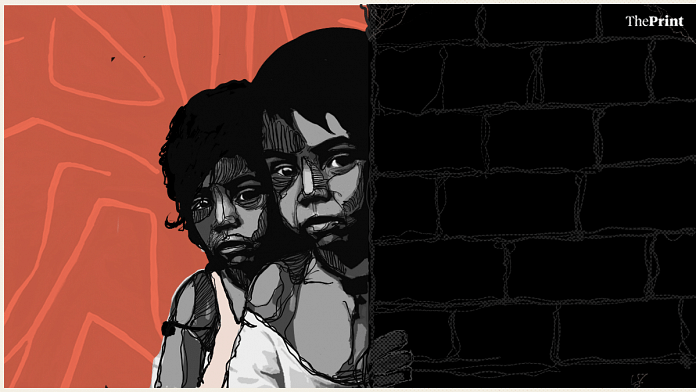New Delhi: In 2013, the United Nations General Assembly designated 30 July as World Day Against Trafficking in Persons, as part of its resolution to coordinate efforts against human trafficking. The resolution sought to develop a plan of action that would promote a gender-based, age-sensitive and human rights-focused approach to address factors that make people vulnerable to trafficking.
It also focused on strengthening the criminal justice response to trafficking and taking forward the universal ratification of the United Nations Convention against Transnational Organized Crime and the Protocol to Prevent, Suppress and Punish Trafficking in Persons. Especially among women and children.
This Protocol defines trafficking as “the recruitment, transportation, transfer of persons by either threat, use of force, abduction or fraud. Where one person has control over another person for the purpose of exploitation. The protocol further defines exploitation as prostitution, sexual exploitation, slavery, forced labour or services or even removal of organs.”
Each year, the observance focuses on a specific aspect of trafficking, and this year’s spotlight is on first responders. First responders consist of organisations and individuals who identify, support and seek justice for survivors of trafficking, work on rehabilitating them and challenge the impunity of traffickers.
Given that so much of 2020 has gone by under lockdown due to the the Covid-19 pandemic, the role of first responders has become that much harder, yet that much more important because it is extremely difficult to get out on the ground and reach out and rescue victims of trafficking.
By highlighting stories of first responders, who explain how they continue their work despite the Covid crisis, the UN hopes to shed light on how essential their work is and on the practical challenges they face.
Also read: On World Population Day, a look at Covid’s impact on women’s safety, employment and health
Human trafficking in India
According to data submitted by the National Crime Records Bureau to the Supreme Court in 2019, Mumbai and Kolkata had the highest cases of trafficking in women and children, mainly for forced marriage, child labour, domestic help and sexual exploitation. A 2014 Dasra report stated that approximately 16 million women are victims of sex trafficking in India a year, while 40 per cent of them are adolescents and children. And more than 70 per cent of victims are illiterate and 50 per cent of them have a family income of less than $1 per day.
There are many NGOs on the ground that help rehabilitate victims of trafficking. Among these is Prerana, which works out of Mumbai, Raigad, and Thane in Maharashtra. Prerana works with victims of sex trafficking, particularly minors. Assistant director Kashina Kareem tells ThePrint that as they are first responders, much of the organisation’s work had suffered in the pandemic. “We mainly go to the red-light areas and reach out to women and children who have suffered the most as it is difficult to be on the field currently.”
Prerana works towards rehabilitating trafficking victims and works on reintegrating them back into society, both legally and socially. Kareem explains, “Our work is very field driven. We go to courts and police stations. Therefore a lot of our work has been impacted. We are adopting new practices and trying to adapt but a lot of it is through trial and error currently.”
Finding a silver lining, Kareem explained that organisations that are equipped with the technology to work remotely should do so, while those that don’t should tie up with other organisations and even government mechanisms to conduct their work. “We have tied up with the district child protection unit to ensure that our work still continues.”
Aside from sex trafficking, India is also riddled with the problem of trafficking for organs. In 2007, the World Health Organisation described India as a “commonly known organ-exporting country”. It said organs from local donors were regularly transplanted to foreigners through sale and purchase, even though the Human Organ Transplantation Act of 1994 banned organ trade in India.
And the problem hasn’t gone away. In July 2019, The Hindu uncovered an illegal organ trade racket in Delhi, including for kidney and liver, and involved police personnel, doctors and hospital administration staff. The scam was pegged to be of more than Rs 100 crore.



